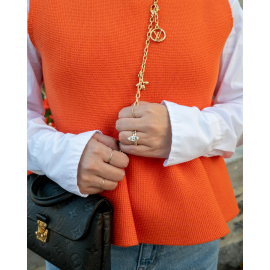Price match guarantee

We’ve teamed up with Klarna to provide flexible payment options, allowing you to shop the way you want. With Klarna, you can split your payment into 3 instalments or choose to pay later, making your shopping experience smoother and more convenient. Your order total must be between £100 and £499 to qualify.

We’ve teamed up with Klarna to provide flexible payment options, allowing you to shop the way you want. With Klarna, you can split your payment into 3 instalments or choose to pay later, making your shopping experience smoother and more convenient. Your order total must be between £100 and £499 to qualify.
.png)
August 02, 2024 | by Admin
It is law within the UK that every item of precious metal sold such as Platinum, Gold, Silver is stamped labelling the item with the type of metal it is. Platinum pieces which weigh less than 0.5 grams, 18ct Gold and Palladium pieces weighing less than 1.0 gram and Silver pieces weighing less than 7.78 grams are except from hallmark.
At Diamonds Factory all our products are hallmarked as per UK hallmarking law from London Assay Office (The GoldSmith Company)
The Goldsmiths' Company Assay Office is the oldest assay office in the United Kingdom. It has provided hallmarking services since The Goldsmiths' Company was founded in the 1300s. The company received its royal charter in 1327 and ranks 5th in order of precedence of the 12 Great Livery Companies of the City of London.
Hallmarking dates back to the 1300s when Edward I of England passed a law requiring any item made of silver, which was offered for sale, to be at least of equal quality as that of the coin of the realm (silver currency). The wardens of The Goldsmiths' Company were tasked with visiting workshops in the City of London to assay (test) silver articles. If these articles were found to be below standard they were originally destroyed and the metal forfeited to the King. If they passed, each article received the King's mark of authentication - the mark of a leopard's head. By 1478, there were several hundred workshops and merchants manufacturing silver articles in the City of London. It was not possible for the wardens to visit them all so the merchants were ordered to bring their items to Goldsmiths' Hall for testing and marking and a permanent Assay Office was established in the building. This is the origin of the term hallmark - struck with the King's mark at Goldsmiths' Hall.
In 1544 the Goldsmith's Company adopted the King's mark as their town mark and the mark of the leopard's head is now internationally recognised as the mark of this assay office.
The Goldsmiths's Company Assay Office is still based at Goldsmiths's Hall and remains the oldest company in Britain to be continually trading from the same site. However, it also has two satellite offices; at Greville Street in Hatton Garden in the heart of the London jewellery quarter and within a high security complex near London's Heathrow airport. It now has a new off-site facility within the Dalston-based jewellery manufacturer, Allied Gold. This is the first time in the Assay Office's 700 year history that it has opened permanent hallmarking services on a customer's premises.
In addition to hallmarking, the office has now expanded its range of services to support the jewellery trade and enforcement authorities. It offers a variety of specialist analytical services including nickel, lead & cadmium testing, antique silver dating, non-destructive compositional analysis, plating thickness measurement and a melt and assay service for scrap precious metal carried out in their fully independent on-site laboratory. Other services offered are a jewellery valuation service, laser marking, trading standards assistance, high quality photography and a comprehensive range of training and educational seminars, lectures and specialist events.






As both Moissanite and Lab Grown Diamonds grow in popularity year on year, a question we’re often asked here at Diamonds Factory is what exactly is the difference between lab grown diamonds vs Moissanite? Although incredibly similar, especially to the naked eye, there are several differences between the two that set them apart. If you’re thinking about buying either a Moissanite Engagement Ring or a Lab Grown Engagement Ring and not sure which one to go with, we’ve compiled together everything you need to know to help make your decision a little easier.
Prong Setting Solitaire Engagement Ring
From £0
Prong Setting Plain Engagement Ring
From £422
White Gold Round Diamond Engagement Ring
From £408
4 Prong Setting Round Moissanite Side Stone Engagement Ring
From £731
4 Prong Setting Round Moissanite Side Stone Engagement Ring
From £1,039
4 Prong Setting Round Moissanite Side Stone Engagement Ring
From £1,011
What is a Lab Grown Diamond?
What is Moissanite?
What are the biggest differences between lab grown diamonds and Moissanite?
Price
Durability
Brilliance
Colour
Can a jeweller tell the difference between lab grown diamonds and Moissanite?
So which gemstone should I go for?
Both are beautiful to the natural eye, so whichever you opt for you’ll be sure to making a great choice especially for an engagement ring. If you prefer to stick to tradition a little more, a lab grown diamond might be the way to go as it features in the diamond family. If you’re working on a tighter budget, you’ll get more gem for your money with a Moissanite. The choice is entirely in your hands, but just know whatever you go for you’ll have a beautifully sparkling and dazzling gemstone that you’ll be sure to love and cherish forever!